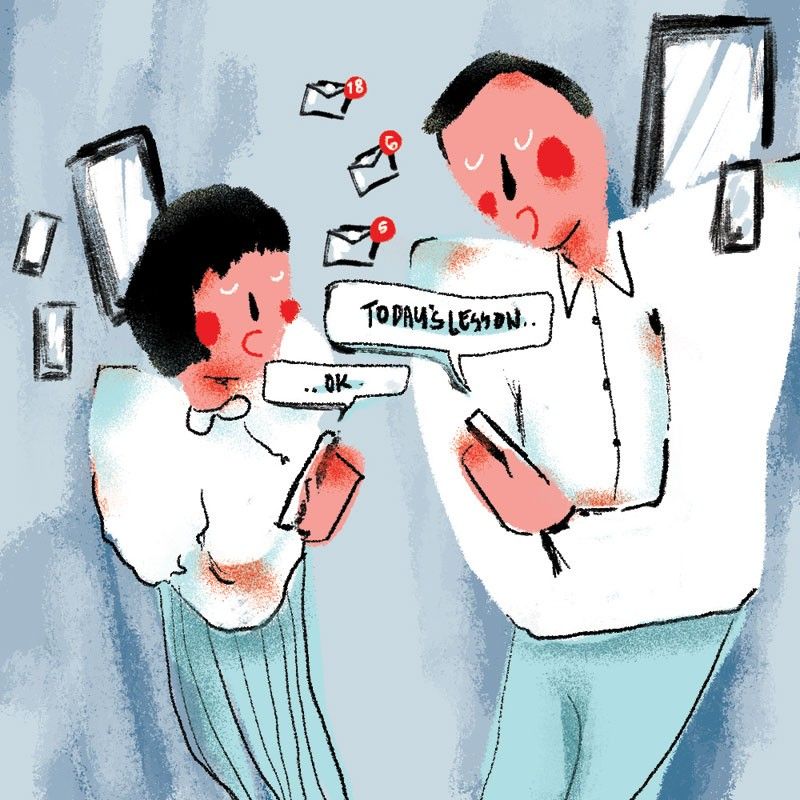Education 4.0: Rebooting Phl teacher education

MANILA, Philippines — Education 4.0 is the new buzzword, and it is disrupting our traditional concept of schooling, teaching and learning. A new generation of learners has invaded our schools replacing the millennials — the Generation Z or the Internet Generation (iGen) learners who are not only tech-savvy, but also technology-dependent, practically born with a smartphone in their hands and regard technology as essential as air and water. They have never seen the world without the internet, and thus cannot imagine living without being connected. They are the true archetype of digital natives. They live and breathe technology. Growing up connected to the cyberworld using different devices enables them to process and absorb tons of information 24/7. They are social media addicts. The hyper-connected environment they grew up in taught them not only the skills, but also more interestingly, the habits to switch tasks effortlessly. Their minds are constantly flowing and moving in different directions. They can thrive in 4D simulated or augmented reality environments.
According to Dr. Darla Rothman, the brains of this internet generation are wired to perceive information visually because the region of their brain for visual ability is more developed due to constant exposure to fast-paced, sensory-laden multimedia environment. Their brain is wired to expect information immediately in bites and chunks, shortening their attention span. Rothman estimates that the average attention span of this generation in online platforms is eight seconds and, in the classroom, is seven to 10 minutes.The iGen learners favor storytelling, explainer videos, interactive games, collaborative projects, experiential learning and other forms of visualization. They are good at video blogging and know that they have the opportunity to be financially independent of their parents by being a social media influencer. They have access to technologies that enable them to be entrepreneurial. They can work and study at the same time. Climate change, ecology-related issues and healthy lifestyles are their preferred causes.
In 2018, the Philippines was ranked 57th of 79 participating countries in the Global Connectivity Index (GCI). We are the fastest-growing digital populations in the world with 63 percent of the population accessing the internet, spending an average of 10 hours a day. Digital 2019 reported that the Filipinos are the top internet users in the world with 47 percent of our online activities spent on social media. Along with this dramatically changed environment is the equally fascinating change in the preferences of today’s learners.
How then do we respond to the challenges of teaching these new kids on the block, the Filipino iGen learners in particular? There emerges now the need to have a national conversation contextualizing Education 4.0 vis-à-vis Industrial Revolution (IR) 4.0 where we see the digitalization of the way economy produces and exchanges goods and services using smart and autonomous systems fueled by data and machine learning.What we have in IR 4.0 is the expanding human-machine partnership giving birth to an innovation society which may render irrelevant the existing design of Philippine Education that was put in place to address the requirements of a mass economy or IR 2.0.
Our attention now shifts to Education 4.0, which puts premium on mobile learning, individualized learning playlist, flexible and customized curriculum and hands-on and practical application of knowledge.
Society will be de-schooled to give way to a diverse learning eco-system driven by learners and their interests and no longer will schools dominate decisions about what and how to learn. Credentials of mastery can be obtained from diverse providers and platforms. Teachers’ role will be challenged by other learning agents. The entry of iGen learners in our schools challenges us to imagine how education of the future would look like.
Are Philippine schools designed to cater to this new type of learners? Do we have the teachers that are fit for iGen learning requirements? Are Philippine teacher education institutions (TEIs) producing the competent teachers the country needs?
We need teachers who will not just be facilitators of learning, but also innovation catalysts. We definitely cannot future-proof our schools overnight. Nor can we immediately make innovators out of our teachers. The culture nor the system is simply not there yet. We must therefore undertake a major rebooting now to upgrade our education ecosystem.
The question now is how do we make teacher education future-proof?
We need to re-define even re-invent teacher education vis-à-vis the future.
As Rothman advised, teachers need to be provided with meaningful, tech-focused, professional development as they transition from a traditional learning model to one that is transformational.
The teacher education curriculum should be innovative enough to include, for example, a) coding and application development to equip our pre-service teachers with the skills needed to develop digital solutions to their teaching-learning problems; b) design thinking for innovation; and c) teaching applications that would work best in handling the “content of the future” using software, hardware, digital, technological and social media.
There is a need to build an education ecosystem that involves not only the schools to take care of the education of our children, but also a strong support from the business sector, the community and the parents. As the saying goes, “It takes a village to educate a child.”
We need to level up the technology infrastructure in the country to reach even the remotest barangay in the country for inclusive education to serve its purpose. Learners from these geographically-challenged areas must also benefit from Education 4.0. No one should be left behind.
We cannot continue doing more of the same things. The time is now to start the process of re-booting our education. We should stop playing catch up.
* * *
Ma. Antoinette C. Montealegre, D.A. is the officer-in-charge at the Office of the President of the Philippine Normal University and the concurrent Vice President for Academics. - Ma. Antoinette C. Montealegre, D.A.
- Latest


























 Partner
Partner



